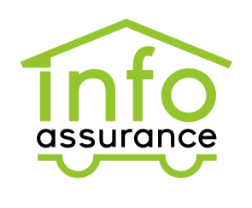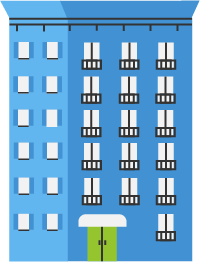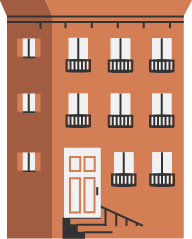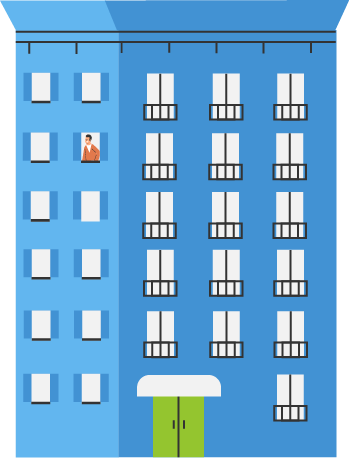Co-ownership implies a number of responsibilities which all co-owners share, and this includes common expenses. What are these expenses exactly? Some co-ownership common expenses are prescribed under the legislation and represent the sums needed to manage, maintain and preserve a condo building. They also include amounts to repair damage following a claim. In the latter case, your co-owner insurance covers part of the common expenses.
Common expenses in the event of a loss
In the event of a loss, your syndicate is responsible for managing the claim and repairing the damage. If it chooses not to file a claim with its insurer, if it does not have insurance to cover the damage or if the insurance is insufficient, the syndicate may claim a sum of money from the co-owners to repair the damage to the portions it is required to insure. This special assessment is referred to as an apportionment.
If the syndicate has no insurance or insufficient insurance, the legislation provides that the shortfall can be apportioned among all the co-owners, regardless of whether or not their unit suffered damage. These are considered common expenses in the event of a loss.
Extension of coverage – loss assessment
Your condo insurance could cover this apportionment under the Extension of Coverage – Loss Assessment, up to the stated limit under your policy and under certain conditions.
To benefit from this coverage, you must have coverage for the perils that caused the damage suffered by the syndicate.
This is why you are advised to insure yourself again all risks to which your condo may be exposed.
Example in case of a sewer back-up:
A sewer back-up causes damage to your condo building. Your syndicate has no insurance and chooses to impose an apportionment to cover the cost of the damage. You will therefore be asked to pay your share of the apportionment. It will be repaid to you by your insurer if you have coverage for sewer back-up under your co-owner insurance. And this even if your unit is a lesser risk or has not suffered damage.
A new common expense: self-insurance fund
All co-owners must contribute to a self-insurance fund which is also a common expense.
This fund is used to pay the syndicate’s deductible or damage following a claim when the syndicate’s insurance is not sufficient or does not cover these expenses.
For example, if several floors are damaged by a major fire, the self-insurance fund could make up for the shortfall if the syndicate’s insurance is not sufficient to pay the sums needed to repair the damage. The self-insurance fund avoids the need to claim a one-time, significant special contribution, generally not projected or budgeted, from the co-owners.
Other common expenses
Condo fees and the contingency fund are also common expenses whose purpose differ from the self-insurance fund.
Condo fees
Condo fees cover the fixed common expenses to which all co-owners must contribute. For example, they can include expenses for cleaning the common areas, the syndicate’s insurance premium, etc. These fees are essential, allowing the co-ownership syndicate to carry out regular maintenance of the condo building, among other things.
Contingency fund
All co-owners contribute to the contingency fund, which is used to pay for major repairs required to maintain the building. For example, replacing a roof or updating equipment. Since this is generally expensive work, constituting such a fund serves to accumulate the sums needed to do the work.
Condo fees, like the contingency fund and self-insurance fund, are the means by which the sums required are collected by the syndicate to pay for certain common expenses.






















